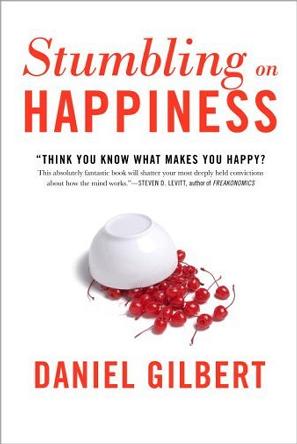内容简介
Why are lovers quicker to forgive their partners for infidelity than for leaving dirty dishes in the sink? Why will sighted people pay more to avoid going blind than blind people will pay to regain their sight? Why do dining companions insist on ordering different meals instead of getting what they really want? Why do patients remember long medical procedures as being less painful than short ones? Why do home sellers demand prices they wouldn’t dream of paying if they were home buyers? Why are shoppers happier when they can’t get refunds? Why do pigeons seem to have such excellent aim; why can’t we remember one song while listening to another; and why does the line at the grocery store always slow down the moment we join it?
In this brilliant, witty, and accessible book, renowned Harvard psychologist Daniel Gilbert describes the foibles of imagination and illusions of foresight that cause each of us to misconceive our tomorrows and misestimate our satisfactions. Vividly bringing to life the latest scientific research in psychology, cognitive neuroscience, philosophy, and behavioral economics, Gilbert reveals what scientists have discovered about the uniquely human ability to imagine the future, and about our capacity to predict how much we will like it when we get there. With penetrating insight and sparkling prose, Gilbert explains why we seem to know so little about the hearts and minds of the people we are about to become.</p>
......(更多)
作者简介
Daniel Gilbert is Harvard College Professor of Psychology at Harvard University. He has won numerous awards for his teaching and research, including the American Psychological Association's Distinguished Scientific Award for an Early Career Contribution to Psychology. His research has been covered by The New York Times Magazine, Forbes, Money, CNN, U.S. News & World Report, The New Yorker, The Wall Street Journal, Scientific American, Self, Men's Health, Redbook, Glamour, Psychology Today, and many others. His short stories have appeared in Amazing Stories and Asimov's Science Fiction Magazine, as well as other magazines and anthologies. He lives in Cambridge, Massachusetts.
......(更多)
目录
......(更多)
读书文摘
在考虑很久以前或者很久以后的事情的时候,我们通常会抽象地考虑这些事情为什么会发生;然而,在考虑不久之前发生的事情或者是不久的将来即将发生的事情时,我们通常会想到非常实际的情况,比如,它们到底是怎样发生的。
在空间中,靠我们近的事物比离我们远的事物更加清晰;同样,在时间上靠我们更近的事情也是如此。不久的将来通常都有细致的细节,而遥远的未来则是模糊和风平浪静的。
......(更多)






